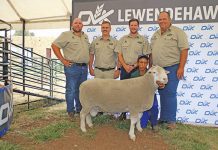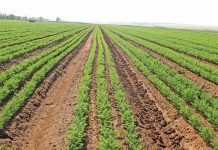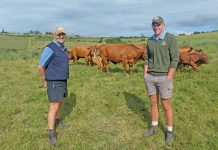SA agribusinesses recently DECLARED very good results. Afgri reported an increase of 18,7% in income per share and an increase of 65,9% in sales and continuing activities. Their product division did particularly well with an increase of 92,8% in sales and profit that increased by 24,8%. The animal feed division experienced an exceptional trading period and returns before tax increased by 82% to R1,99 billion. One must, however, note that these results are based on a financial period of 16 months and thus over-emphasise the improvement. Senwes also had a good year. Turnover grew by 38% to R7,6 million, after-tax profit to R173 million (+38%), giving a return on equity of 22%. Profit grew from R183 million to R250 million, while profit after tax grew from R127 million to R175 million. Western Cape’s former WPK cooperative, now known as Kaap Agri, also had a good year, as did well-known agribusinesses like Astral and Omnia.
The investment climate
The long-term food price rise has prompted a demand for investment in agriculture. Recently, a UK investment company joined forces with a German one to create a fund for investment in farmland in Poland, Hungary, Romania and the Czech Republic. E uropean investors’ view of the way in which they can profit from soaring food prices has evolved. When food prices exploded in 2007, they bought agricultural commodity futures and readily available agricultural companies. Investors, who now realise that food prices have moved to a new equilibrium, want to invest in farmland and companies in the food value chain.
Higher food prices have also resulted in increased investment in farmland by capital-rich countries like Saudi Arabia to secure fertile farmland in African and Asia. In this case, their goal is not investment value but to safeguard their food supply. I n SA, Jannie Mouton’s PSG Group was far ahead of the pack. It realised a few years ago that agribusinesses were good investments. As cooperatives were changed into public companies, they started investing in them.
In his chairperson’s letter in Zeder’s (a PSG investor) 2008 annual report, Mouton lists the reasons why agricultural companies are good investments – they’re profitable and asset-rich with loyal client bases. shares usually trade well below net asset value with price earning ratios ranging from three to five times. only negative factor for investors is the restrictions placed on the transfer of shares. n April 2008, Zeder had investments in Kaap Agri Ltd (33,6%), KWV (20,8%), Senwes (5,8%), OVK Operations (8,1%), Suidwes Investments (15,5%) KLK Landbou (10%), BKB (3,3%), NWK (4,4%) MGK Business Investments Ltd (25,8%), Tuinroete Agri (5,9%) and Agricol Holdings (20%). Zeder had a net profit of R207 million in the year ended 29 February 2008.
The new breed of cooperatives
The old-style cooperatives were supposed to deliver goods and services to farmers on a cost-plus basis. Because they were regarded as extensions of farmers’ businesses, cooperatives were not meant to be profitable. Soon the management of some of these organisations regarded the cooperatives as their own property and ran them as such. When the new government came into power, cooperative management used fears of the new Cooperatives Act as an excuse to convert to public companies, in some cases successfully and in others with disastrous effect. Farmers remain the major shareholders in most of these companies. Soon the management of these former cooperatives changed their minds and became profit-driven. Fierce Competition between some of these former cooperatives and increased efficiency has resulted in healthy profits for some.
However, there is a difference in outlook among these companies. In 2006, Senwes closed down several so-called unprofitable branches in the Free State. OVK stepped in and filled the vacuum. This enabled OVK to increase their profits by 78,8% in the last six months of the 2007/2008 financial year. It seems as if an overly-narrow, short-term focus on profit alone can cause the loss of client loyalty and lower profits in the long term. he change from cooperative to company holds both opportunities and threats for farmers. There’s an opportunity for farmers to invest excess funds in these agribusinesses, individually or as a group through Zeder. Farmers can then share in the profits made in the rest of the farm-to-fork value chain.
The uncertainty about agricultural property rights makes off-farm investment a sensible option, while the management expertise that a company like Zeder brings to agribusinesses also aids these companies’ efficiency. However, new agribusinesses won’t ensure that farmers receive the best price for their produce, nor will they ensure that they buy inputs at the lowest price. Farmers will have to take responsibility for both. New-style, smaller, single-purpose cooperatives offer a way in which farmers can legally combine their purchasing and selling power and add value to their products. Dr Koos Coetzee is an agricultural economist at the MPO. All opinions expressed are his own and do not reflect MPO policy. |fw








